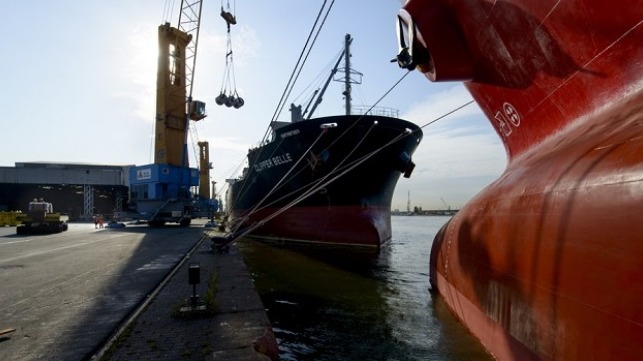Nigerian Authorities Participate in Anti-Corruption Project

The private maritime sector and Nigerian authorities have undertaken an anti-corruption project together with the aim of port calls being conducted without demands for in-kinds payments, harassment or the threat of illicit delays.
Nigeria can be a challenging place to do business in, with unlawful demands commonplace, says Danish Shipping, a trade and shipowner organization. For the shipping industry there are numerous steps in the vessel clearance process which lead to inefficient operations and increase the opportunity for illegitimate demands in ports. As an example, an analysis carried out by the Maritime Anti-Corruption Network and United Nations Development Programme concluded that it can take more than 140 signatures to get a vessel or cargo cleared by the local authorities.
“Unlawful demands put a huge risk on vessel crew and shipping companies,” says Maria Skipper Schwenn, Executive Director, Danish Shipping. “Cases of extortion, harassment and threats of violence are, unfortunately, not uncommon. Danish Shipping has a zero-tolerance approach towards bribery, and we are very pleased that the anti-corruption efforts have been fruitful. Danish operated vessels call at Nigerian ports nearly 600 times a year so the financial value of fair and smooth port calls is enormous. It is of upmost importance for the shipping sector that trade and port calls are free from any illicit demands that cause iniquitous delays and stressful situations for the crew.”
The Maritime Anti-Corruption Network has been active in Nigeria for a number of years and has been able to push for improvements in ports processes. With funding from several donors the network has been able to develop a platform of tools to improve the port environment. These tools have been tested in Nigeria with positive feedback and have been further enhanced by an integrity training kit for port officials.
To date the project has supported the implementation of harmonized operational procedures in ports, the establishment of a grievance mechanism process and has carried out an integrity training program for 1,000 stakeholders in Nigeria.
A recent survey of shipping companies calling at ports in Nigeria has demonstrated that the anti-corruption project had a positive effect on the operating environment in the country. Shipping companies have periodically achieved a zero-tolerance approach to corrupt demands without threats or delays in Nigeria.
“The lessons learnt here and the toolkit we have developed can also be applied globally to combat corruption in other hot-spot locations,” says Cecilia Müller Torbrand, Director of the Maritime Anti-Corruption Network.
Danish Shipping was responsible for the contact with donors and the financial governance. The project was funded by Danida, the Danish Maritime Fund, Orient Foundation and Lauritzen Foundation.
Corruption adds 10 percent to the cost of doing business globally and is fundamentally detrimental to economic development, according to the World Bank.
